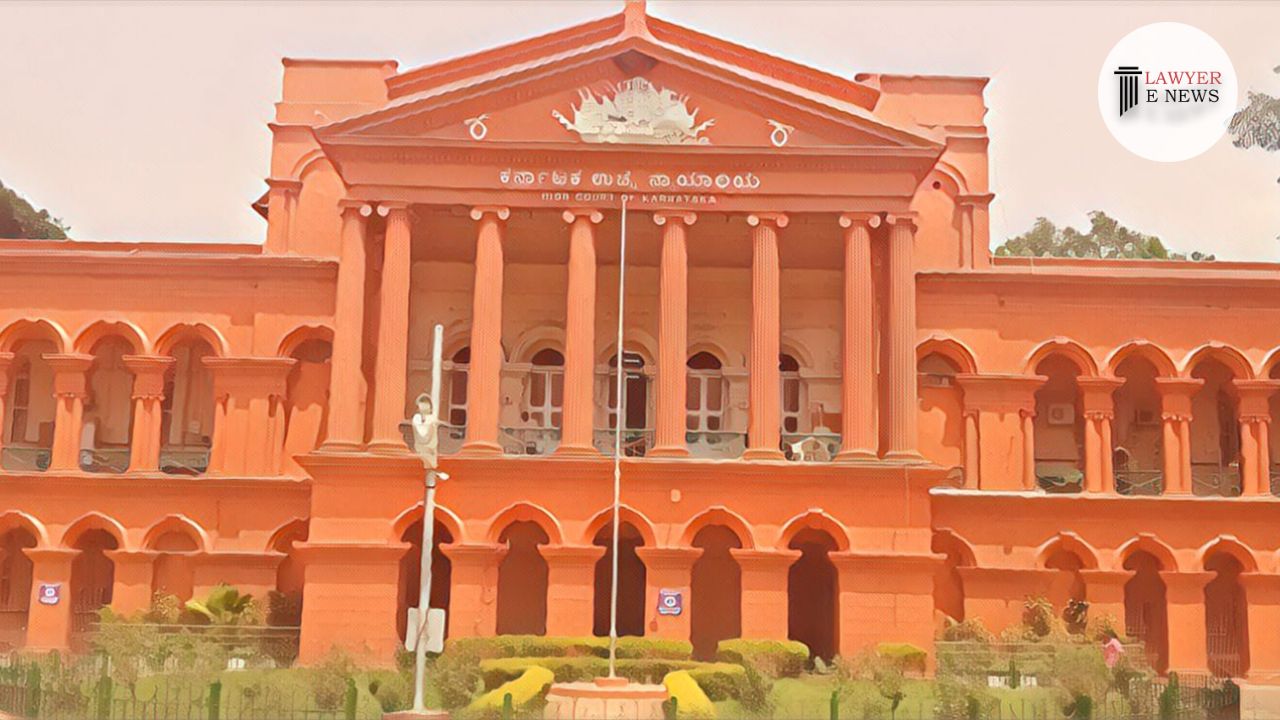-
by Admin
15 February 2026 2:16 AM



In a significant ruling, the Karnataka High Court has set aside a trial court judgment that had decreed specific performance of a sale agreement. The judgment, delivered by a bench comprising Justices Krishna S. Dixit and Ramachandra D. Huddar, underscores the necessity for plaintiffs to provide clear evidence of their readiness and willingness to fulfill contractual obligations.
In Regular First Appeal No. 6 of 2013, the appellants, Smt. Lakkamma @ Lakshmamma and her sons, contested the trial court’s decision favoring the respondent, Smt. Jayamma. The case centered on a sale agreement dated August 2, 2007, in which the appellants had agreed to sell a property to the respondent for ₹17,00,000, with an initial advance of ₹50,000 paid. The respondent claimed continuous readiness and willingness to perform her part of the contract, which the trial court accepted, directing the appellants to execute the sale deed.
Readiness and Willingness:
The High Court critically examined the plaintiff’s evidence regarding her financial readiness to pay the remaining balance. The court found the plaintiff’s claims unsubstantiated by adequate proof of available funds or arrangements made to secure them. “It is for the plaintiff to show that she was in a position to pay the balance money,” the court stated, emphasizing the necessity of tangible evidence beyond mere assertions.
Power of Attorney Testimony:
The court highlighted the inadequacy of the testimony provided by the plaintiff’s power of attorney, her son. The judgment noted, “Plaintiff’s readiness and willingness must be personally proven,” referencing the principle that a power of attorney holder cannot serve as a witness on behalf of the plaintiff in the capacity of the plaintiff.
Market Value Consideration:
The court also took into account the significant rise in property values over the years, deeming the original contract price inequitable due to substantial appreciation. “The steep increase in prices is a circumstance which makes it inequitable to grant the relief of specific performance where the purchaser does not take steps to complete the sale within the agreed period,” the court observed, aligning with precedents that recognize economic changes as a factor in such judgments.
The judgment thoroughly discussed the principles governing specific performance under Section 16(c) of the Specific Relief Act, 1963. The court reiterated that a plaintiff must aver and prove continuous readiness and willingness to perform the contract from the date of the agreement to the time of hearing. The plaintiff’s failure to demonstrate this readiness through concrete evidence, particularly given the significant time lapse and economic changes, led the court to conclude that specific performance was not warranted.
Justice Krishna S. Dixit remarked, “The non-completion of a contract must not be the fault of the plaintiff. Mere deposit of the balance consideration after a considerable delay cannot establish readiness and willingness within the meaning of Section 16(c) of the Specific Relief Act.”
The Karnataka High Court’s decision to set aside the trial court’s judgment sends a clear message about the stringent requirements for proving readiness and willingness in specific performance cases. By emphasizing the need for concrete evidence and considering economic realities, the judgment is expected to influence future cases involving contractual disputes.
Date of Decision: June 13, 2024
Smt. Lakkamma @ Lakshmamma & Others vs. Smt. Jayamma
